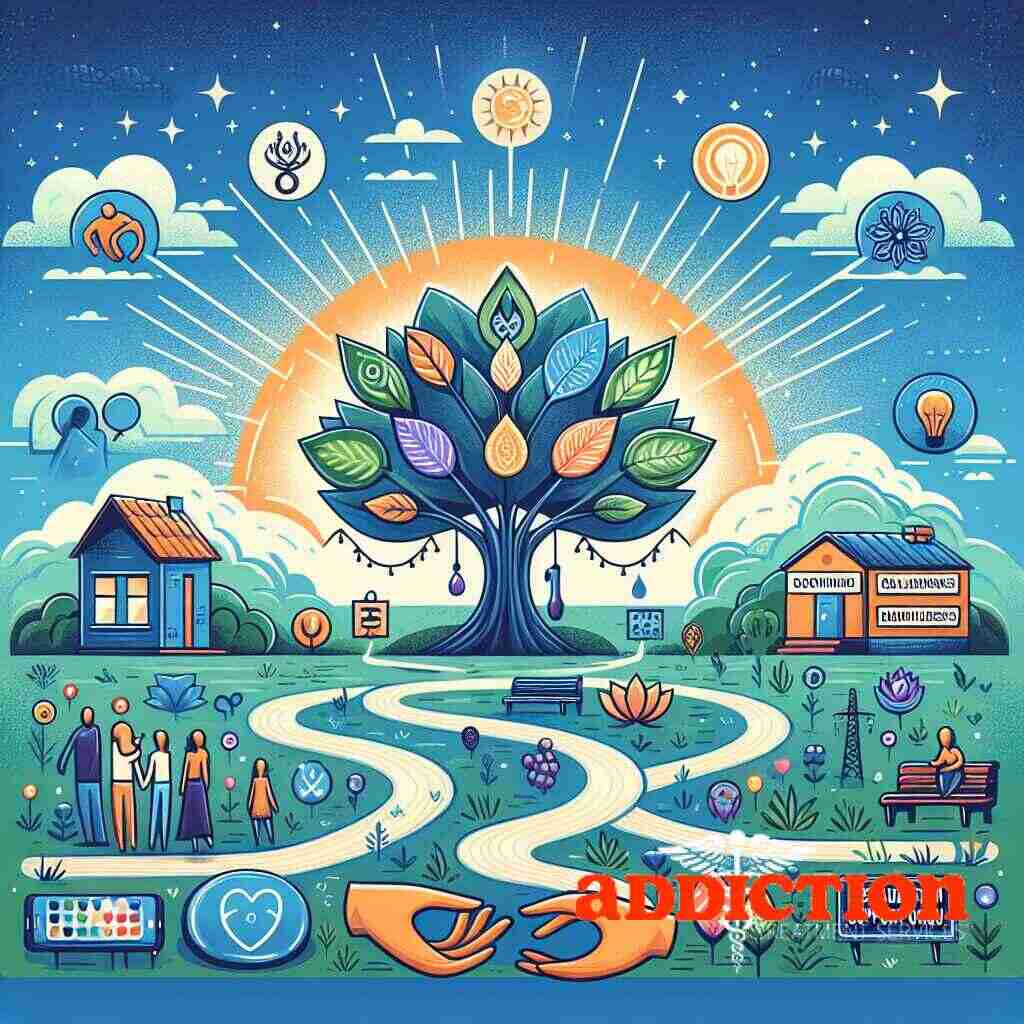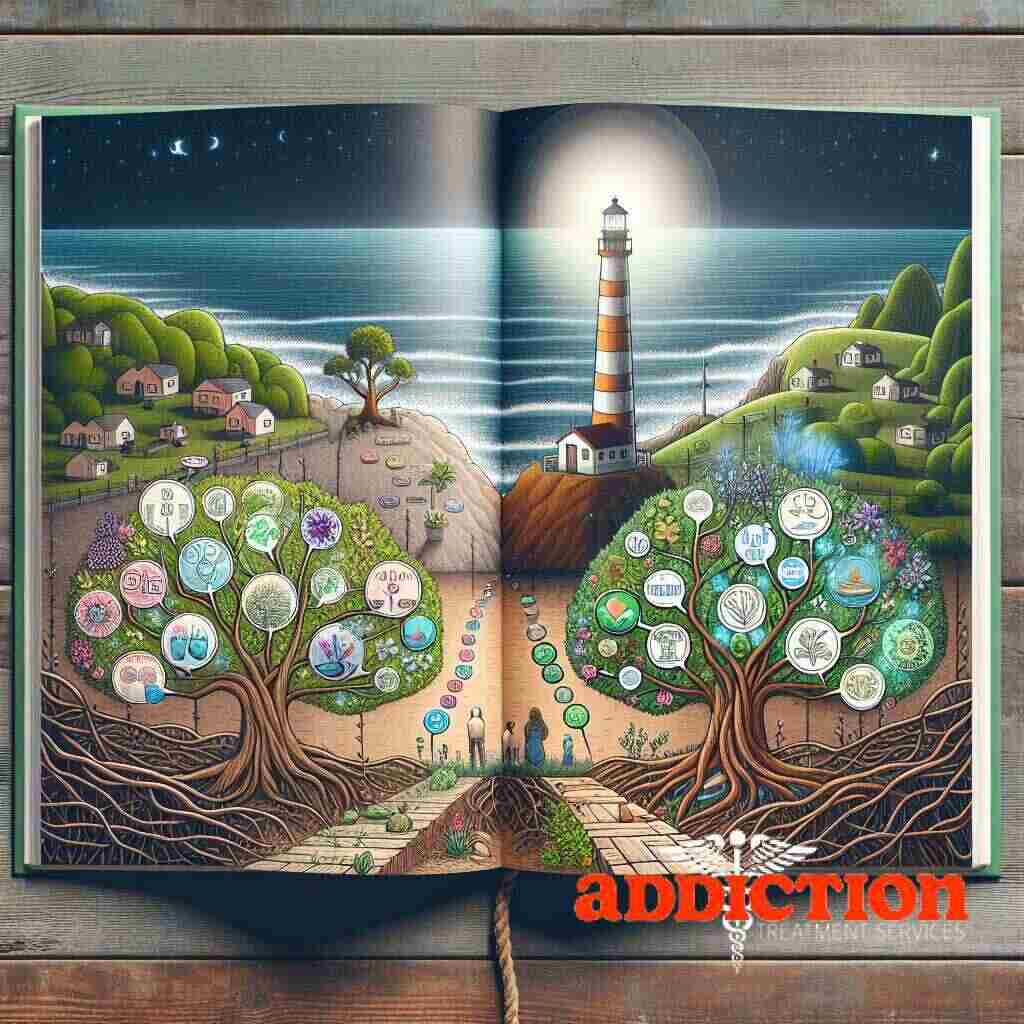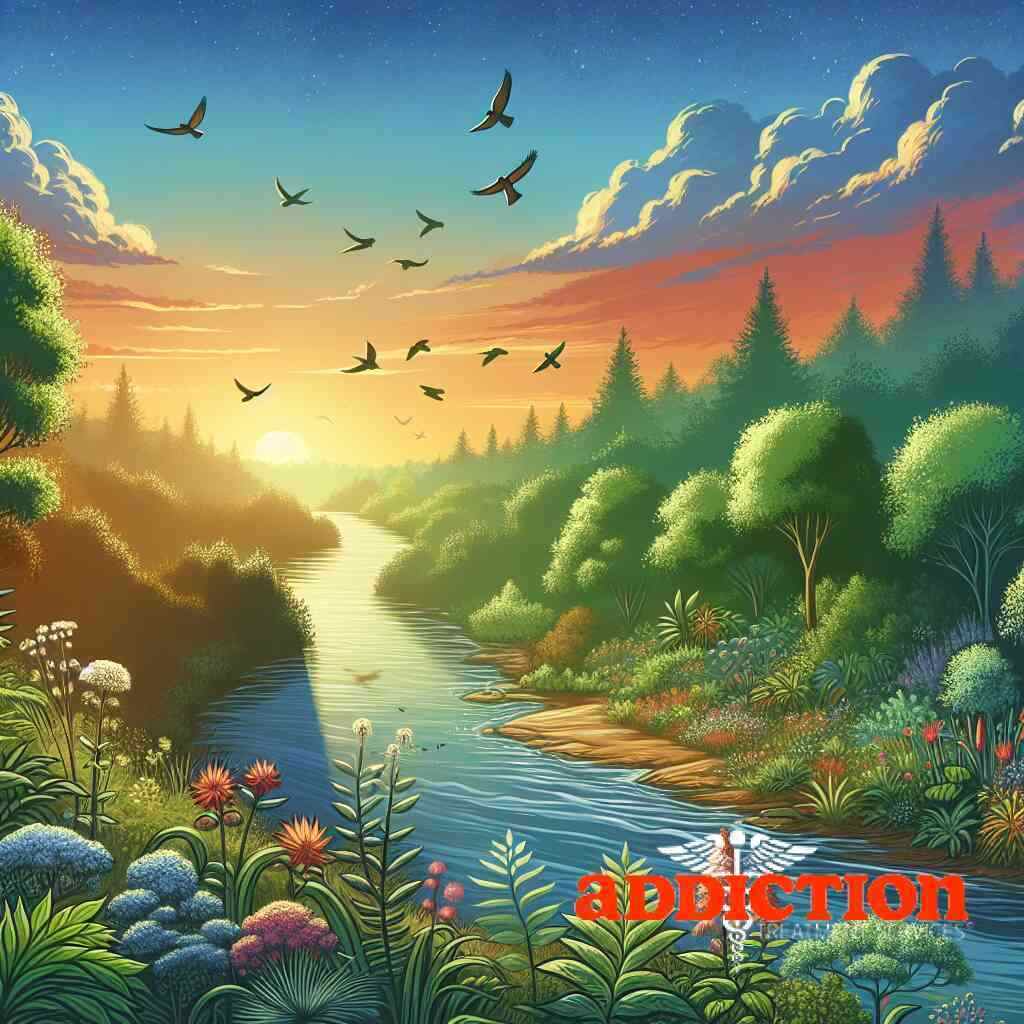 Posted On: 03/10/2024
Posted On: 03/10/2024Introduction to Finding Sobriety Support in Your Community
Understanding the Importance of Community in Recovery
Recovery from addiction is not a journey that one should embark on alone. The road to sobriety is fraught with challenges that can overwhelm even the most determined individuals. This is where the importance of community comes into play. A supportive community offers more than just a network of individuals going through similar struggles, it provides a sense of belonging, understanding, and mutual support that is crucial for long-term recovery. Within such communities, individuals find not only camaraderie but also a shared commitment to healing and growth, making the journey towards recovery less isolating and more attainable.
How Local Support Can Amplify Your Journey to Sobriety
Local support groups play a vital role in the recovery process by offering proximity and accessibility to those in need. These groups provide a platform for individuals to share their experiences, victories, and setbacks in a safe and supportive environment. The power of local support lies in its ability to offer face-to-face interaction, fostering stronger bonds and a more intense sense of community. It amplifies the journey to sobriety by availing resources and empathetic ears within one’s immediate environment, making the process more integrated into daily life. This immediate access to support can make a significant difference in moments of temptation or hardship, offering a real-time lifeline that can steer individuals away from relapse.
The Role of Addiction Treatment Services in Facilitating Local Support
Addiction Treatment Services plays a crucial role in bridging individuals seeking sobriety with local support groups. By offering a comprehensive directory of addiction treatment services near you, the platform acts as a lifeline for those grappling with substance use disorders. It simplifies the process of finding appropriate care, whether it’s alcohol addiction treatment, drug addiction treatment, or holistic treatment options. The platform provides detailed information on various types of treatments, from detox centers to residential and outpatient treatment, including specialized programs like dual diagnosis treatment. By ensuring individuals are well-informed about the spectrum of options available for their unique recovery journey, Addiction Treatment Services facilitates a smooth transition into local support systems, enhancing the effectiveness of the recovery process.
Identifying the Right Addiction Support Group for You
The Diversity of Support Groups Available
The landscape of addiction support groups is as varied as the individuals who attend them. From traditional 12-step programs like Alcoholics Anonymous (AA) and Narcotics Anonymous (NA) to modern alternatives focusing on holistic recovery and non-abstinence strategies, the options are vast. Each type of group brings its own approach, philosophy, and community culture, catering to different preferences and recovery needs. For instance, SMART Recovery employs a science-based methodology aimed at self-empowerment and self-reliance, diverging from the spiritual grounding of 12-step models. Moreover, groups like Refuge Recovery integrate mindfulness and meditation practices into the recovery process, appealing to those looking for a spiritual but non-religious path. Understanding the diversity of these groups is the first step in finding one that resonates with your personal journey and enhances your chances of sustained sobriety.
Evaluating Your Needs: Substance Misuse and Recovery Goals
Selecting the ideal support group for your recovery journey requires a deep understanding of your own needs and recovery goals. Reflect on your substance misuse patterns: are you grappling with alcohol addiction, prescription drug dependency, or other substances? Different groups specialize in various types of substance misuse, and finding one that aligns with your specific challenges can be immensely beneficial. Moreover, consider your recovery goals: Are you aiming for complete abstinence, or are you seeking to reduce harm and manage use? Your objectives will significantly influence the type of group that will best support your path towards recovery. Additionally, personal preferences, such as a desire for a secular versus spiritual approach, or the need for a supportive community that addresses concurrent mental health issues, should guide your decision-making process. Remember, the right fit can empower you to stay engaged and committed to your recovery journey.
The Benefits of Specialized Groups for Substance Abuse
Specialized groups for substance abuse offer tailored support that addresses the unique challenges and dynamics of different types of addictions. For instance, alcohol addiction support groups provide a focused environment for individuals grappling with alcohol dependency, often discussing topics specifically related to alcohol use, its effects, and the process of recovery from alcoholism. Similarly, there are groups dedicated to those recovering from opioid addiction, prescription drug misuse, and other substances. These specialized groups can provide more relevant insights, coping strategies, and a deeper understanding of the nuances of each type of addiction. Additionally, many find that being among peers who are dealing with similar substances can foster a stronger sense of connection and understanding, providing a shared language and experience that enrich the support system. Engaging with a group that focuses on your specific area of substance misuse can enhance your ability to navigate the complexities of recovery, offering targeted tools and communal strength tailored to your individual journey.
Sober Living and Lifestyle Groups
What is Sober Living?
Sober living refers to a lifestyle dedicated to maintaining sobriety and wellness after recovering from substance abuse. Often supported by sober houses, these environments are structured to avoid the triggers of substance misuse and provide a stable, supportive community for individuals in recovery. A cornerstone of sober living is the collective commitment to substance-free living. Additionally, residents often engage in regular group activities, meetings, and sometimes shared responsibilities within the house, fostering a sense of accountability, camaraderie, and mutual support. Sober living is not just about avoiding substances, it’s about building a fulfilling, healthy lifestyle that supports long-term recovery and personal growth.
Finding Sober Lifestyle Groups Near You
Identifying sober lifestyle groups in your area can be a pivotal step toward reinforcing your commitment to sobriety. Local resources, such as Addiction Treatment Services, offer directories and listings for sober living community meetings and lifestyle groups. These resources are invaluable for those seeking to connect with like-minded individuals who are also on the path to recovery. Moreover, engaging with local community centers, rehabilitation facilities, or even online platforms like Top sober house can reveal numerous groups that cater to varying needs and preferences. Whether you’re looking for a sports-based group, creative arts gatherings, or simply routine meetups for coffee and conversation, there’s likely a sober lifestyle group that aligns with your interests and recovery journey.
The Impact of Sober Living on Long-term Recovery
Sober living environments play a critical role in supporting long-term recovery by providing a bridge between intensive treatment and complete autonomy. The structured lifestyle, combined with peer support, significantly reduces the risk of relapse. Individuals in these settings benefit from the positive influence of peers who are also committed to sobriety, creating an atmosphere of mutual encouragement. The emphasis on cultivating healthy habits, such as regular exercise, balanced nutrition, and mindfulness practices, further reinforces the foundation for long-lasting recovery. Additionally, the sober living community fosters personal development and accountability, key elements in building a fulfilling life free from substance dependence. By integrating sober living principles into daily life, individuals enhance their resilience against the challenges of maintaining sobriety, paving the way for a successful, sustained recovery.
Online vs. In-Person Support Groups
The Advantages of Online Addiction Support Groups
In the era of digital connectivity, online addiction support groups have emerged as a vital resource for those seeking help with substance misuse or dependence. These virtual platforms offer several unique advantages that cater to the needs of a diverse population. Firstly, they provide access to support regardless of geographical limitations, making valuable resources and community connections available to anyone with an internet connection. This is particularly beneficial for individuals in remote areas or those with mobility restrictions. Secondly, online addiction support groups uphold a level of anonymity and privacy that some individuals prefer, especially in the early stages of recovery. Participants can share their experiences and seek advice without the fear of being recognized, which can foster a more open and honest dialogue on platforms like online addiction support groups. Lastly, these groups offer flexibility in scheduling, allowing individuals to participate in sessions at times that best fit their personal and professional commitments. The accessibility, anonymity, and convenience of online support groups make them an appealing option for many on their path to recovery.
The Unique Benefits of In-Person Meetings
While the digital realm offers convenience, the unique benefits of in-person addiction support meetings are undeniable. These face-to-face gatherings provide a tangible sense of community and belonging that is difficult to replicate online. The physical presence of peers and facilitators can foster deeper emotional connections and a stronger sense of accountability. In-person meetings often facilitate non-verbal communication cues, such as body language and eye contact, which enhance empathy and understanding among group members. These interactions can significantly contribute to an individual’s recovery by reinforcing their commitment to sobriety and providing a supportive space for sharing and healing. Additionally, in-person groups tend to offer supplementary resources such as literature, guest speakers, and workshops that enrich the recovery experience. The immediacy and intimacy of face-to-face interactions underscore the value of in-person support groups as essential components of a comprehensive recovery plan.
How to Choose Which is Best for You
Deciding between online and in-person support groups for addiction recovery can be challenging, as both platforms offer distinct advantages. When making this decision, it’s crucial to evaluate your personal needs, circumstances, and preferences. If you value flexibility and anonymity or face barriers to physical attendance, online groups might be the ideal choice for you. These platforms can provide a starting point for those hesitant about seeking help and offer a bridge to more intensive support when ready. Conversely, if you’re seeking direct human interaction and the unique benefits that come with being part of a physical community, in-person meetings might be more suitable. They can offer a level of support and connection that deeply resonates with many individuals’ recovery journeys.
Ultimately, the choice between online and in-person addiction support groups should align with what feels most supportive to your recovery process. For some, a combination of both online and in-person participation can offer a balanced approach, allowing for the benefits of varied support systems. Regardless of the format, the key is to engage actively and consistently with a support group that meets your needs and fosters your growth toward sobriety.
Support for Families of Addicts

Understanding the Family’s Role in Recovery
Families play a pivotal role in the recovery journey of individuals struggling with addiction. The path to recovery is often complex and laden with both physical and emotional challenges. Families are not just bystanders but crucial participants in the healing process. Their support, understanding, and encouragement can significantly impact the success of the recovery efforts. Recognizing and acknowledging substance misuse as a shared issue rather than an individual’s burden fosters an environment of collaboration and open communication. Effective participation in the recovery process involves educating oneself about addiction, developing healthy coping strategies, and establishing boundaries that promote the well-being of all involved. By doing so, families can transform from being affected by addiction to becoming integral allies in the journey towards sobriety.
Finding Family-Centric Addiction Support Groups
The quest for recovery is both an individual and collective endeavor. Families supporting a member through addiction often require their own support system to navigate the emotional, psychological, and logistical challenges that arise. Family-centric addiction support groups provide a sanctuary for families to share experiences, learn from each other, and gain practical advice on handling the complexities of addiction. These groups are designed to address the unique needs of families, offering a blend of empathy, education, and empowerment. To locate such groups, families can reach out to local addiction treatment centers or use resources like sober living community meetings, which often list family support programs. Engaging with these groups allows families to connect with others who understand their struggles, fostering a sense of community and shared purpose in the face of adversity.
How Family Participation Can Aid in the Recovery Process
Active family participation in the recovery process serves as a cornerstone for building a sustainable foundation for sobriety. Families that engage in therapy sessions together, attend family-centric support meetings, or participate in recovery education workshops gain insights into the mechanisms of addiction and recovery. This collective learning and engagement facilitate empathy, reduces stigma, and strengthens relational bonds strained by substance misuse. Furthermore, family involvement in structured support groups encourages accountability, both for the individual in recovery and for family members adapting to new dynamics and behaviors supportive of recovery. This shared commitment not only aids the person in recovery but also promotes healing and resilience within the family unit itself, leading to more cohesive and supportive relationships. Through understanding, participation, and solidarity, families emerge not only as supporters but as active contributors to the successful journey towards sobriety.
Integrating Mental Health and Addiction Support
The Link Between Mental Health and Substance Abuse
The intricate relationship between mental health issues and substance abuse is well-documented, highlighting the need for integrated support services. Individuals experiencing mental health challenges, such as anxiety, depression, or PTSD, are at a higher risk for developing substance use disorders. This connection, often referred to as dual diagnosis or co-occurring disorders, underscores the importance of addressing both mental health and addiction concurrently. Failure to treat the underlying mental health condition can lead to a cycle where substance use is relied upon as a form of self-medication, exacerbating both the addiction and the mental health issue. Conversely, substance abuse can precipitate or worsen mental health conditions, creating a complex web of challenges that requires comprehensive treatment approaches. The recognition of this bidirectional relationship necessitates the integration of mental health services with addiction support to facilitate effective recovery and long-term wellness.
Finding Groups that Address Both Mental Health and Addiction
Identifying groups that tackle both mental health and substance abuse issues is pivotal for individuals facing the intertwined challenges of dual diagnosis. These integrated support systems, which include mental health and addiction support groups, offer a multifaceted approach to recovery that addresses the full spectrum of an individual’s needs. Such groups often utilize a combination of psychotherapy, medical prescription management, and peer support to provide comprehensive care. When searching for these groups, it’s beneficial to consult resources like Addiction Treatment Services, which offers a directory of local addiction treatment centers with specialized programs for co-occurring disorders. Moreover, psychiatrists and mental health professionals can offer guidance and referrals to appropriate support groups that integrate mental health and addiction services. Engaging with groups that understand the complexity of dual diagnosis can significantly enhance the recovery process, providing a more tailored and effective approach to tackling the root causes of substance misuse.
The Importance of Holistic Treatment Approaches
Adopting a holistic treatment approach is vital for addressing the multifaceted nature of substance abuse and mental health issues. Holistic therapies aim to treat the person as a whole, incorporating physical, emotional, spiritual, and social aspects of well-being into the recovery plan. This comprehensive approach recognizes that addiction and mental health disorders are not isolated conditions but are intertwined with various aspects of an individual’s life. Holistic treatments might include traditional therapy methods like psychotherapy and medication-assisted treatment, combined with alternative therapies such as mindfulness, yoga, art therapy, and nutrition counseling. These methods work together to provide a more rounded and effective treatment plan that encourages personal growth, self-discovery, and healing on multiple levels. By focusing on the interconnectedness of mental health and addiction, holistic treatment approaches can offer a more sustainable path to recovery, empowering individuals to achieve a balanced and fulfilling life beyond substance abuse.
Peer Support for Addiction
The Power of Peer Support in Addiction Recovery
Peer support in addiction recovery holds an invaluable role in facilitating sustainable healing and growth for individuals navigating the challenges of substance misuse. At its core, peer support embodies the essence of mutual aid – individuals with lived experiences of addiction offering guidance, understanding, and encouragement to one another. This form of support is rooted in a shared sense of empathy and solidarity, creating a safe space where members can openly discuss their struggles and progress without fear of judgment. The power of peer support lies in its ability to provide real-world examples of recovery success, instilling hope and motivation among participants. Furthermore, such groups promote a culture of self-help where members learn coping strategies and resilience from each other, fostering a proactive approach to recovery. This empowerment through collective experience is what makes peer support an indispensable element of the addiction recovery landscape.
How to Connect with Peer Support Groups for Addiction
Connecting with peer support groups for addiction has become increasingly accessible, thanks to a wealth of resources available both online and in local communities. To find a group that aligns with your recovery journey, start by utilizing directories of reputable addiction recovery services, such as Addiction Treatment Services, which offers comprehensive listings of support groups for drug addiction. These platforms provide detailed information about various support groups, making it easier to find one that meets your specific needs and preferences. Additionally, many treatment centers, community health organizations, and even libraries or community bulletin boards can offer recommendations for local peer support groups. Online forums and social media platforms can also be valuable sources for discovering online peer support communities, which offer flexibility and the convenience of participating from anywhere. Whether you prefer face-to-face meetings or online interactions, the key is to take that first step in reaching out and becoming part of a supportive peer network committed to recovery.
The Role of Peer Supporters in the Recovery Journey
Peer supporters play a pivotal role in the recovery journey, acting as both mentors and confidants to those working towards sobriety. These individuals draw upon their personal experiences with addiction and recovery to offer insight, guidance, and hope to others facing similar challenges. The strength of peer supporters lies in their ability to relate on a personal level, fostering a connection grounded in empathy and mutual respect. Through active listening, sharing their success stories, and imparting practical advice, peer supporters help demystify the recovery process and make it seem more attainable. Additionally, they act as accountability partners, encouraging consistent progress while understanding the complexities of recovery, including the potential for setbacks. By offering a judgment-free space for growth and self-discovery, peer supporters significantly contribute to building the resilience and self-confidence necessary for long-term recovery. Through their dedication and compassion, peer supporters ensure that no one has to face the journey to sobriety alone, reinforcing the fundamental principle that recovery is a shared, communal effort.
Navigating Challenges and Ensuring Continuous Support

Dealing with Common Challenges in Support Groups
Participants in addiction support groups can sometimes encounter challenges that threaten their progress and commitment to sobriety. Common issues such as conflicts within the group, feelings of exclusion or misunderstanding, and the fear of judgment or relapse can create significant barriers to effective recovery. Additionally, the diversity of experiences and recovery paths can lead to disagreements on methods and approaches to sobriety. To navigate these obstacles, it’s crucial for group leaders and members alike to foster a culture of empathy, open-mindedness, and respect for individual journeys. Establishing clear guidelines on communication and behavior, encouraging the sharing of diverse perspectives, and providing mediation in conflicts can help maintain a supportive and united group environment. Moreover, reminding members of the shared goal of recovery and the strength found in unity can be powerful in overcoming these challenges.
Setting up a Supportive Environment for Continuous Recovery
Creating a conducive environment for continuous recovery involves more than just regular attendance at support group meetings. It requires the cultivation of a supportive ecosystem that extends into every aspect of an individual’s life. This involves engaging in substance abuse recovery networks, integrating recovery principles into daily living, and establishing healthy routines that reinforce sobriety. Key elements include developing a strong support system of friends and family who understand and respect the individual’s journey, participating in fulfilling activities that do not revolve around substance use, and seeking additional professional help when necessary. For instance, engaging in addiction and recovery workshops can enhance one’s coping skills and resilience. Furthermore, environments that reduce exposure to triggers and offer alternatives to substance use play a pivotal role in supporting continuous recovery, enabling individuals to build a sustainable, fulfilling life in sobriety.
Utilizing Addiction Treatment Services for Ongoing Support
In the journey of recovery, ongoing support is a cornerstone of enduring sobriety. Addiction Treatment Services positions itself as an invaluable ally in this continuous process by offering a comprehensive directory of resources, including addiction counseling groups, specialized treatment programs, and access to sober living environments. It broadens the horizon of support beyond immediate group meetings to a wider network of resources tailored to facilitate long-term recovery. The platform also offers insights into managing relapse, navigating life transitions, and accessing educational materials that empower individuals with knowledge on maintaining sobriety. By leveraging Addiction Treatment Services, participants can find the right tools and connections to support their recovery journey at every stage, ensuring they have the resources needed to overcome challenges and sustain their progress. Engaging with this extensive network ensures that individuals in recovery have access to a broad spectrum of support options, tailored to meet their evolving needs as they progress on their path to lifelong recovery.
Conclusion: Embracing a Community of Recovery
The Transformative Power of Support Groups
The path to recovery from addiction is one filled with challenges and milestones. As highlighted throughout, one of the most significant assets for those on this journey is the presence of a supportive community. Addiction support groups serve as a vital lifeline, offering understanding, empathy, and solidarity. These groups embody the power of shared experiences, enabling individuals to draw strength from peers who have traversed similar paths. The benefits of such groups extend beyond mere companionship, they provide invaluable resources, coping strategies, and a sense of hope. By fostering an environment where vulnerability is met with support, addiction support groups can instigate profound transformation, driving individuals towards sustained recovery and a future free from substance dependency.
Making the First Step Towards Joining a Support Group
Taking the initial step to join a support group requires courage. It’s a decision that acknowledges the need for help beyond individual efforts and opens the door to a wealth of communal resources and understanding. For many, this first step is the most challenging yet rewarding part of their recovery journey. It signifies a readiness to share one’s story, learn from others, and commit to the path of healing. If you’re contemplating this step, remember that you’re not alone. Countless others have stood where you stand, faced similar apprehensions, and found a newfound strength in the solidarity of support groups. It’s important to research, reach out, and most importantly, be kind to yourself through the process. Resources like addiction and recovery workshops can provide additional guidance and insight as you navigate this crucial phase.
How Addiction Treatment Services Can Help You Find the Right Group
Addiction Treatment Services is more than just a resource for finding treatment centers, it’s a comprehensive guide designed to connect you with the support group that best fits your recovery needs. With an extensive directory covering a wide range of substance misuse support groups and specialized treatment options, finding the right group in your locality is made simpler. Whether you are looking for a group that focuses on a specific type of addiction, one that integrates mental health support, or perhaps a sober living community, our service has you covered. Beyond that, Addiction Treatment Services offers valuable insights into the recovery process, highlighting effective strategies, potential challenges, and the importance of community in sustaining recovery. By leveraging this resource, individuals seeking support can make informed decisions, ensuring they engage with groups that resonate with their personal journey towards healing and sobriety.


